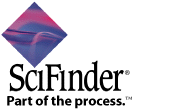
Hein Online - Subject Compilations of State Laws
A directory of 18,000+ articles, books, government documents, court opinions & websites that compare state laws on hundreds of subjects.
Subjects include:
- Agricultural Cooperatives
- Agricultural Districts
- Agriculture
- Biotechnology
- Corporate Farming
- Environmental Protection
- Farm Machinery
- Farm Products
- Farmland
- Farms and Farming
- Flowers
- Food
- Grain Dealers
- Insects
- Land Use
- Organic Farming and Food
- Pesticides
- Plants
- Right to Farm
- Scientific Research
- Viruses
- Wetlands
- Wildlife
There's also a Subject Matter Index for the Wisconsin Statutes. Topics of interest include:
- Agricultural societies
- Agriculture, Trade, and Consumer Protection Dept.
- Agriculture and farming
- Animals
- Cranberries
- Endangered species
- Fertilizer
- Fish and game
- Food regulation
- Forest croplands
- Forests, logging and trees
- Groundwater protection
- Insect pests
- Irrigation
- Lyme disease
- Managed forest lands
- National Forests
- National Parkways
- Natural Resources Department
- Nurseries
- Pesticides
- Plants and plant industry
- Pollution
- Rural planning
- Soil
- Soil and water conservation
- State Geologist
- Statistics
- Weeds





